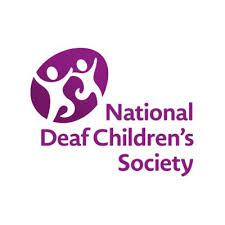Can the Communication Professional (CP) access arrangement (AA) be applied for learners in England who use SSE?
Can the Communication Professional (CP) access arrangement (AA) be applied for learners in England who use SSE?
BATOD response
It should be noted that access regulations regarding BSL varies in different parts of the UK.
For the context in England, Wales and Northern Ireland, it may be useful to look at the history of the Communication Professional (CP) access arrangement. It was previously known as Sign Language Interpreter, which demonstrates that the access arrangement was for deaf candidates in exams who use BSL.
The name was changed for a number of reasons, including the fact that there are very few qualified interpreters who work in education, and booking an outside interpreter risks contravening the requirement for the candidate to be familiar with and understand the interpreter. So now, other staff can perform the role, if they have BSL Level 3 as a minimum and are personally at the level of the exam, etc.
Previous regulations for CP stated that the question could be repeated but must be signed in exactly the same way, but that was unworkable in the exam room, so now the CP can sign an alternative rendering. I would argue that the CP needs to know that the candidate understands the question. If I was unsure, but I realised that using SSE* would be helpful, I would go ahead, making sure that these important aims are met:
- The rigour of the exam is maintained.
- The candidate has access to the question.
- Without adding explanation.
- Without clarifying the question.
- Finger-spell subject-specific words/terms**.
There are more, but if these are met, I would argue that using SSE (as a natural part of BSL language as a ‘contact’ tool) is a minor concern. Of course, using SSE for the whole of the exam is not using BSL.
Having said all that, greater use of SSE is within the Language Modifier*** (LM) remit, so you should consider applying for that access arrangement, noting the LM is a rare and exceptional arrangement, hence the need for such a low standard score**** that would place the candidate around 1st percentile for their cohort. Below 70 is very significantly below the average range for their age.
The history of the LM is more for deaf candidates who wouldn’t necessarily use an interpreter, being more English based, but a candidate applying for an LM would have language support for the curriculum. The range of the LM role has more width than the CP role and suits some candidates much better. Candidates who would benefit from this arrangement will be those who need significant language modifications as their normal way of working in order to access the curriculum and language of the classroom.
It must be added that there is no evidence needed to support the CP arrangement, but a candidate requiring LM must register a particular score or less on a standardised test. In terms of the tests used when assessing to see if a candidate would meet the criteria for a language modifier, it needs to be a test that assesses reading comprehension and/or vocabulary. Whilst there is not a particular test identified, it is important to note that not all tests that are designed to assess these areas will give a standardised score that low. For example, the BPVS test only gives a standardised score to 70 and then records anything lower as <70. So, the test chosen needs to be considered carefully.
There are also requirements for the person acting as LM. This arrangement is seen by JCQ as ‘an arrangement of last resort’.
Just a note about ‘Normal way of working’. This describes the interaction of the CP/LM in class tests, mock exams etc, not primarily in the day-to-day support given in the classroom. There are many reasons for this. The CP/LM would struggle to maintain ‘exam regulations’ in the classroom, because they must make sure the student has access to learning, not access to an exam. And ‘normal way of working’ through the normal course is difficult to demonstrate, while it is easier to demonstrate in class tests, mocks etc. with the right forms and procedures in place. Part of the CP/LM’s role is training the student to become a candidate i.e., to understand the difference between classroom practice and assessments/exams. There is a huge difference between what they will likely need to have modified in a lesson in order to learn and access the lesson, compared to what they are allowed to have modified in assessments. It is also essential to make clear to candidates that they must ask for help and make clear for example when they want text read to them, or a question modified.
The JCQ booklet ‘Access Arrangements and Reasonable Adjustments’ is regulations not guidelines, so is crafted in the style of principles that cover a range of scenarios. We must apply the principles to our scenarios, not the other way around. A ‘guidelines’ document would be huge and unwieldy, so CP/LMs must be fully conversant with the regulations and let them inform practice. There are lots of ‘What if’s’ but the regulations stand, and we must work with them.
* The use of SSE will/could be beneficial to those who are not hearing or mishearing / or not lipreading / mis-lipreading the English, and the LM aspect would allow for a rephrase.
** Finger-spell subject-specific words/terms is in related to England, Wales and Northern Ireland. In Scotland the BSL technical sign is expected.
*** The language modifier (LM) is used in England, Wales and Northern Ireland. In Scotland there is the possibility of using a reader aloud, but they are not permitted to alter the words.
**** There is no particular standardised test for LM specified by JCQ. The regs state ‘The candidate will have been assessed with current editions of nationally standardised tests’.




